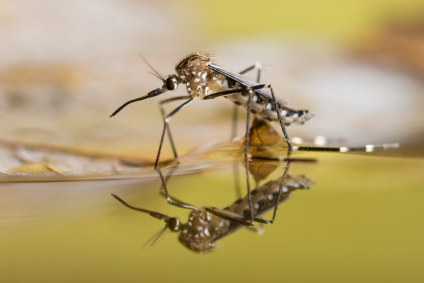- Sections :
- Crime & Public Safety
- Restaurants & Food
- Sports
- More
Houston Methodist urges community to take precautions for Zika

THE WOODLANDS, Texas – Physicians at Houston Methodist The Woodlands Hospital say local residents can protect themselves from the Zika virus with some common-sense precautions.
The virus, currently found primarily in Latin America and the Caribbean, is spread by the Aedes species of mosquito. When contracted by pregnant women, Zika can cause the neurological defect known as microcephaly, or incomplete brain development, in their newborn babies. It is less serious in non-pregnant adults and children, causing fever, joint/muscle pain and conjunctivitis, commonly known as “pink eye.”
As of mid-June, there has not been a reported case of locally contracted Zika in Texas. The small number of individuals here who developed the disease did so after traveling to a virus hot spot. That is good news for local women, doctors say.
“Women who are pregnant or who are planning to become pregnant in the coming months should be cautious about Zika, but there is no need to panic,” says Andrea Richter-Werning, M.D., chair of obstetrics/gynecology and pediatrics at Houston Methodist The Woodlands Hospital. “A few simple precautions can protect you from the virus.”
Richter-Werning suggests that if possible, women and their partners avoid travel to areas where Zika is prevalent (a full list of these sites is available at http://www.cdc.gov/zika/geo/index.html).
“Zika can be transmitted during sex by a man who is infected, so it is important that expectant fathers, or those planning a family soon, protect themselves, too,” said Richter-Werning.
She also recommends that women and their partners wear long-sleeved shirts and long pants when outside, especially during the daytime hours, when the Aedes mosquito is more likely to bite.
“If women are concerned about their risk, or their partners’ risk, they should talk to their OB/GYN,” she said.
Along with proper clothing, using insect repellent regularly – and properly – is an important component in protecting against Zika, said Shilpa Vaidya, M.D., an internist with Houston Methodist Primary Care Group.
“Insect repellents with DEET or picaridin, in concentrations of up to 30 percent, offer excellent protection from the mosquito that carries Zika,” Vaidya said. “Some of the most effective brands are available in local stores or online, and can provide protection for up to eight hours. If you are planning on being outside this summer, it’s important to use a good repellent. First put on sunscreen, then apply the repellent on top.”
The most effective insect repellents – as rated by Consumer Reports – include Sawyer Picaridin, Ben’s 30% DEET Tick & Insect Wilderness Formula, Repel Lemon Eucalyptus, Natrapel 8 and Off! Deepwoods VIII.
Apply all repellents lightly on exposed skin and clothing, since studies show that heavy doses don’t work better. When applying to your face, spray the repellent on your hands first and then rub it in. Be sure to wash your hands after application and before eating or drinking.
“Don’t forget to protect children as well, with long sleeves and pants and insect repellent,” Vaidya said. “An adult should apply the repellent and avoid putting it on a child’s hands to protect against accidental ingestion. And don’t use repellent on babies younger than two months old.”
For more information on Houston Methodist The Woodlands campus, please visit houstonmethodist.org/thewoodlands. For more information about Houston Methodist, visit houstonmethodist.org.



















